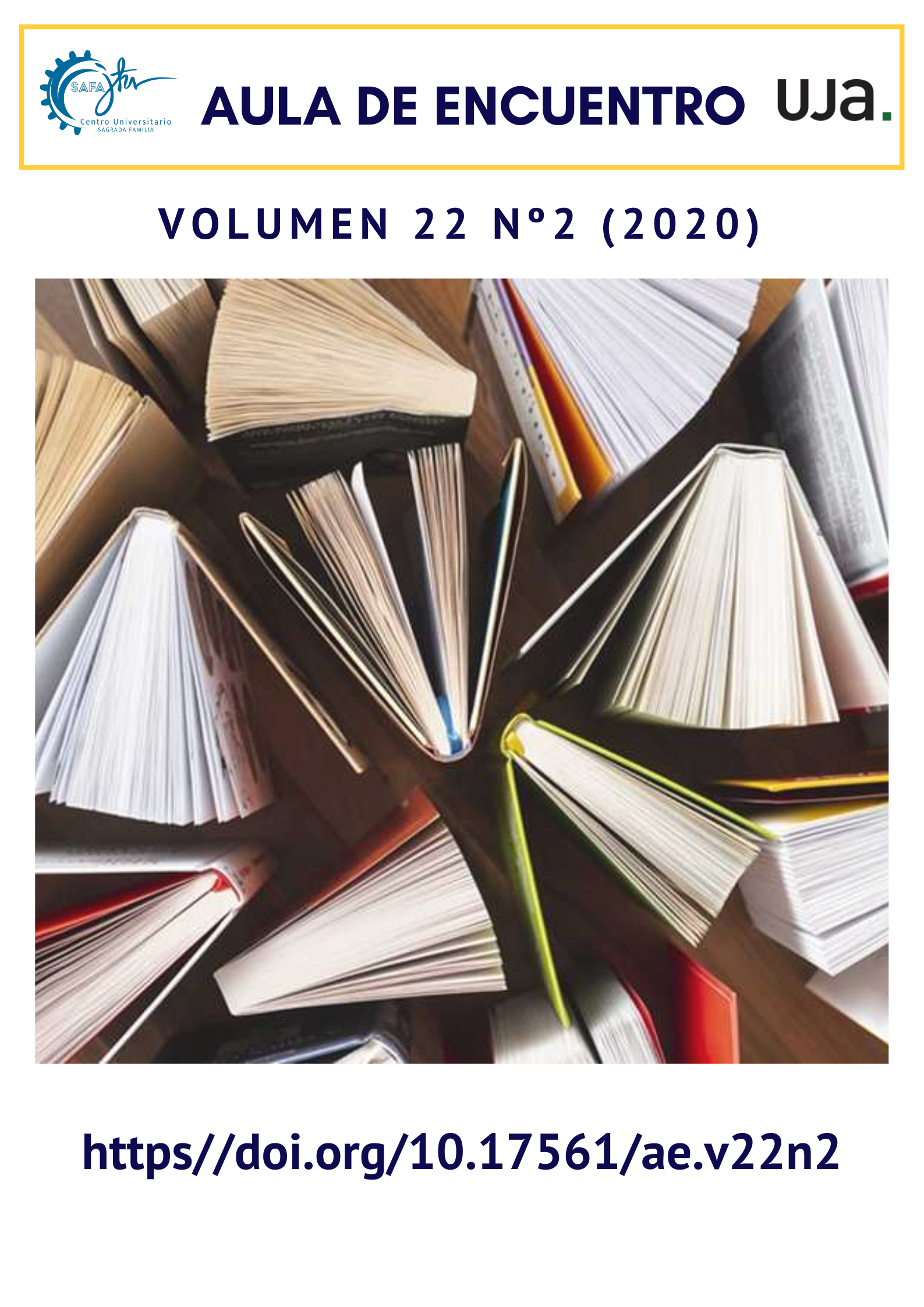Coeducation dans la formation des enseignants: outil pour la prevention de la violence de genre
DOI :
https://doi.org/10.17561/ade.v22n2.5310Mots-clés :
Formación inicial del profesorado, educación infantil, coeducación, prevención en violencia de género, igualdad de oprotunidadesRésumé
La coeducación es una herramienta clave en la prevención de la violencia de género, y por ello debe estar presente en la formación inicial del profesorado de Educación Infantil como elemento inclusivo en la igualdad de oportunidades entre niños y niñas. La presente investigación-acción realizada al alumnado del último curso del Grado de Educación Infantil de la Universidad de Cádiz, parte del objetivo de formar al alumnado, futuros maestros y futuras maestras en materia de coeducación para prevenir la violencia de género y propiciar una escuela no sexista y discriminatoria. Mediante la metodología de investigación acción-participativa, partimos de un cuestionario inicial el cual apuntaba sobre la urgente necesidad de formación en coeducación. Se llevó a cabo una formación práctica que derivó en una intervención educativa muy positiva en una escuela de Educación Infantil a través de la resignificación de canciones populares sexistas. Esta experiencia nos lleva entre otras conclusiones a que el profesorado de Educación Infantil debe tener formación actualizada e innovadora en temas de coeducación y conocer materiales no sexistas como las canciones infantiles para construir una escuela y por ende una sociedad igualitaria y libre de violencia de género.
Téléchargements
Références
Alcántara, M.D. (2002). De abnegada a maltratada: la socialización en la violencia de género. En M.T. López, M.J. Jiménez y E.M. Gil (Eds.), Violencia y género I (pp. 515-520). Málaga: Servicio de Publicaciones del Centro de Ediciones de la Diputación de Málaga.
Apple, M. (1997). Una economía política de las relaciones de clase y de sexo en educación. Barcelona-Buenos Aires-México: Paidós.
Araya, S. (2001). La equidad de género desde la representación social de los formadores y las formadoras del profesorado de segunda enseñanza. (Tesis doctoral inédita). Universidad de Costa Rica, Costa Rica.
Arslan, H. (2012). Teachers' Perceptions of Gender Discrimination on Elementary School Coursebokks. Egitim Arastirmalari‐Eurasian Journal of Educational Research, 12(49), 311‐329.
Broch Martin, D. & Sanahuja Ribés, A. (2019). Trabajando la coeducación a través del cuento de «La Cenicienta» desde un proceso de investigación- acción. Tendencias Pedagógicas, 34,169-182. https://doi.org/10.15366/tp2019.34.013
Cabral, B.E. y García, C.T. (2001). Deshaciendo el nudo del género y la violencia, Otras Miradas, 1(1).
Colás, P. (2004). La construcción de una pedagogía de género para la igualdad. En M. A. Rebollo & I. Mercado (Coords.), Mujer y desarrollo en el siglo XXI: voces para la igualdad (pp. 275-291). Madrid: McGraw-Hill.
Ferrer, V. y Bosch, E. (2013). Del amor romántico a la violencia de género. Para una coeducación emocional en la agenda educativa. Revista de Currículum y Formación del Profesorado, (17, (1) ,106-122. Recuperado de https://recyt.fecyt.es/index.php/profesorado/article/view/41570
García-Pérez, R., Rebollo, M. A.; Vega, L.; Barragán, R.; Buzón, O., & Piedra, J. (2011). El Patriarcado no es Transparente: Competencias del Profesorado para Reconocer la Desigualdad. Cultura y Educación, 23(3) ,385-397. https://doi.org/10.1174/113564011797330298
Guil Bozal, A. (1998). El papel de los arquetipos en los actuales estereotipos sobre la mujer. Revista científica Iberoamericana de comunicación y educa-ción, Comunicar 11, 95-100. https://doi.org/10.3916/C12-1999-14
Hagger, H. & Mcintyre, D. (2006). Learning teaching from teachers: Realising the Potential of School-Based. New York: Open University Press.
Instituto de la Mujer/ Red2 consultores (2004). Estudio para conocer la situación actual de la educación para la igualdad en España. Madrid: Instituto de la Mujer.
Ley Orgánica 3/2007, de 22 de marzo, para la igualdad efectiva de mujeres y hombres. Boletín oficial de Estado (23 de marzo de 2007), págs. 12611-12645.
Martínez, M. (2009). Ciencia y arte en la metodología cualitativa. México: Trillas.
Romero Díaz, A. & Abril Morales, P. (2008). Género y la formación del profesorado en los estudios de Educación Infantil. Revista Electrónica Interuniversitaria de Formación del Profesorado, 11 (3), 43-51.
Ruiz Ruiz, E. & Alario Trigueros, T. (2010). La prevención de la violencia de género en la formación inicial del profesorado. Tabanque. Revista pedagógica, (23), 127-144.
Salazar, M. C. (2006). (Comp.). La investigación-acción participativa. Inicios y desarrollos. Madrid: Popular.
Sánchez Torrejón, B., & Barea Villalba, Z. (2019). Hacia una escuela violeta: la formación inicial del alumnado de Educación Primaria en coeducación. Tendencias Pedagógicas, 34, 76-92. https://doi.org/10.15366/tp2019.34.007
Valdivieso, S. (Coord.), Ayuste, A., Rodríguez-Menéndez, M.C. y Vila-Merino, E. (2016). Educación y género en la formación docente en un enfoque de equidad y democracia. En I. Carrillo i Flores (Coord.), Democracia y educación en la formación docente (pp. 117-140). Universidad de Vic-Universidad Central de Cataluña.
Vila, I. (2000). Aproximación a la educación infantil: características e implicaciones educativas. Revista Iberoamericana de Educación, 22, 41-60. https://doi.org/10.35362/rie2201021
Téléchargements
Publié
Numéro
Rubrique
Licence
Los autores que publican en esta revista están de acuerdo con los siguientes términos:
- Los autores conservan los derechos de autor y garantizan a la revista el derecho de ser la primera publicación del trabajo al igual que licenciado bajo una Creative Commons Attribution License que permite a otros compartir el trabajo con un reconocimiento de la autoría del trabajo y la publicación inicial en esta revista.
- Los autores pueden establecer por separado acuerdos adicionales para la distribución no exclusiva de la versión de la obra publicada en la revista (por ejemplo, situarlo en un repositorio institucional o publicarlo en un libro), con un reconocimiento de su publicación inicial en esta revista.
- Se permite y se anima a los autores a difundir sus trabajos electrónicamente (por ejemplo, en repositorios institucionales o en su propio sitio web) antes y durante el proceso de envío, ya que puede dar lugar a intercambios productivos, así como a una citación más temprana y mayor de los trabajos publicados (Véase The Effect of Open Access) (en inglés).
![]()
Este obra está bajo una licencia de Creative Commons Reconocimiento 4.0 Internacional.












